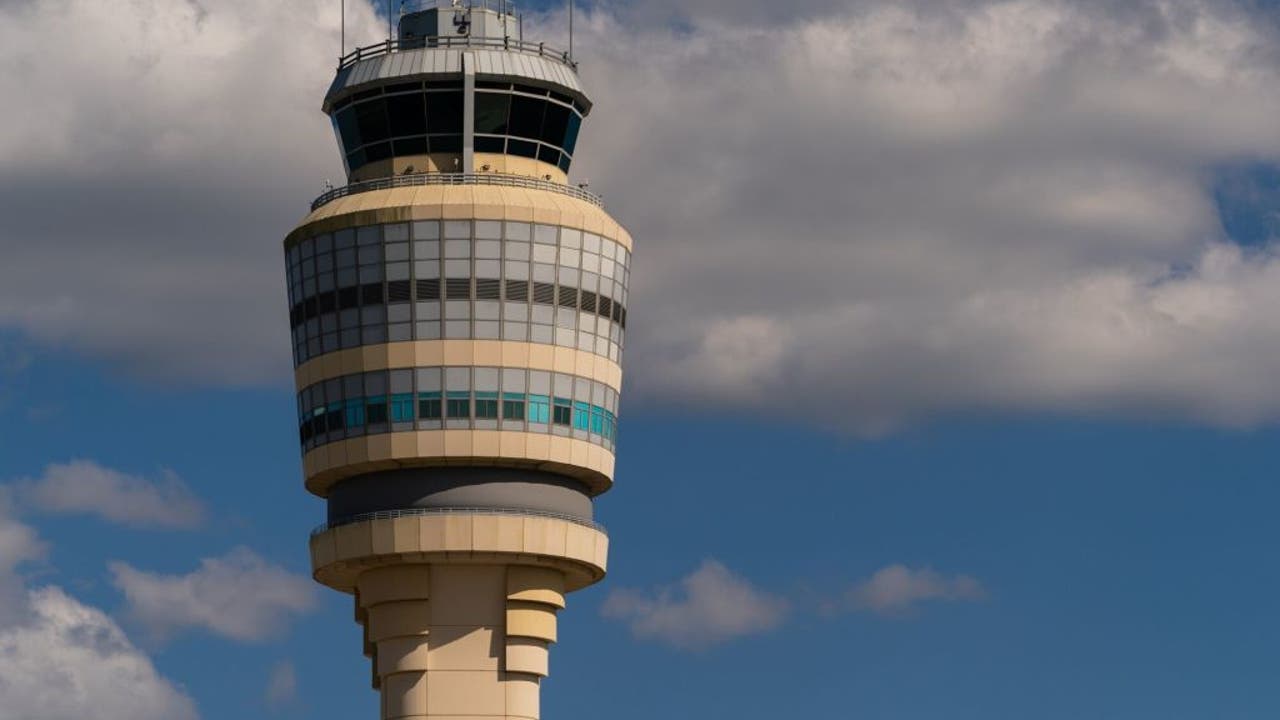Nate Raymond reports on the federal judiciary and litigation. He can be reached at nate.raymond@thomsonreuters.com.
Massachusetts
Labor, industry gear up for dueling Massachusetts gig worker ballot measures
/cloudfront-us-east-2.images.arcpublishing.com/reuters/J7I6GSD3MNP7TMAIWJIJFHNC44.jpg)
Uber and Lyft drivers protest during a day-long strike outside Uber’s office in Saugus, Massachusetts, U.S., May 8, 2019. REUTERS/Brian Snyder/File Photo
BOSTON, Aug 2 (Reuters) – The fight over the status of Uber Technologies (UBER.N) and Lyft (LYFT.O) ride-share drivers entered a new phase on Wednesday, as an industry-backed group and a labor union proposed letting Massachusetts voters decide whether their workers in the state should be treated as independent contractors or allowed to unionize.
Flexibility and Benefits for Massachusetts Drivers, a group whose top contributors include Uber, Lyft and DoorDash (DASH.N), filed a proposed ballot question that would ask voters to declare the companies’ drivers are not employees, but independent contractors entitled to minimum benefits.
The proposal would establish an earnings floor equal to 120% of the state’s minimum wage for app-based drivers, or $18 an hour in 2023 before tips. Drivers would also receive healthcare stipends, occupational accident insurance and paid sick time.
The question closely mirrors an earlier 2022 ballot measure that Massachusetts’ top court blocked from going forward, saying it went too far by including an unrelated proposal that would limit the companies’ liability for accidents by their drivers.
The ballot measure’s supporters say that to address the “technical questions” the court raised, its backers submitted multiple options with the office of Massachusetts Attorney General Andrea Campbell, a Democrat who must certify whether the proposed question meets state constitutional requirements.
Labor activists will fight that proposal, including a union that on Wednesday filed its own competing ballot question with Campbell’s office that asks voters to grant drivers the right to unionize.
SEIU Local 32BJ, the union, called it a first-in-the-nation initiative that would allow drivers to choose a union and bargain working conditions and compensation collectively.
“The best antidote to unchecked corporate greed and rising inequality is building worker power through a union,” Roxana Rivera, the head of the union in Massachusetts, said in a statement.
The industry-backed proposal follows a similar 2020 measure in California, where the companies persuaded state voters to solidify ride-hail and food delivery workers’ status as independent contractors with some benefits.
A California judge 2021 ruled that the measure, Proposition 22, violated the state’s constitution. But a state appeals court in March revived the measure, a major victory for the industry.
Reporting by Nate Raymond in Boston; Editing by David Gregorio
Our Standards: The Thomson Reuters Trust Principles.

Continue Reading
Massachusetts
The Scoop on Massachusetts Senator Elizabeth Warren's Dog Bailey

Massachusetts U.S. Sen. Elizabeth Warren is one of those people you love or loathe. There doesn’t seem to be a middle ground with this Oklahoma-born transplant who pretended to be Native American to better her chances of rising to the top.
In a recent column, National Review columnist Jeffrey Blehar, host of the Political Beats podcast, had little trouble expressing how he feels about the Bay State’s senior senator, calling Warren “a phony who leveraged a fraudulent ethnic identity to climb to the top of academia and subsequently converted it into a lifelong political sinecure.”
Blehar referred to Warren as a “useless, officious busybody and hypocrite scold” who practices “retail politics.”
The Scoop On Massachusetts Sen. Liz Warren’s Dog Bailey
His comments were in response to Warren’s usual duck and cover, this time from questions about when she knew Joe Biden was out to lunch and not fit to serve a second term.
It reminds me of Warren’s unsuccessful and short-lived 2020 presidential bid. Warren finished fourth in her birth state of Oklahoma in the primary, with 13.4 percent of the vote to Joe Biden’s first-place showing with 38.7 percent.
Warren finished third in her adopted state of Massachusetts, from which she was the sitting U.S. Senator, with 21.5 percent to Biden’s first-place showing with 33.5 percent.
All the while, Warren chugged beer from a bottle, hugged strange children, rode the subway and walked a dog, all to prove she was human. Blehar nailed it.
The Scoop On Massachusetts Sen. Liz Warren’s Dog Bailey
What about the dog? Some folks believed Warren borrowed or perhaps rented the dog as a campaign prop.
Warren’s dog Bailey was born in May 2018 and belongs to Warren and her Harvard professor husband Bruce H. Mann. They still have Bailey and can be seen walking him from time to time around their Cambridge neighborhood.
Bailey, a male golden retriever named for the lead character George Bailey in the film It’s a Wonderful Life, was a gift from Mann to his wife. The couple previously owned a golden retriever named Otis who died in 2012.
While much about Sen. Elizabeth Warren is a show, Bailey is real and was not a campaign prop.
LOOK: The most popular dog breeds in America
Gallery Credit: Stacker
LOOK: Can you tell the difference between these common pets?
Can you tell the difference between a hamster and a guinea pig? How about a betta and a guppy? Test your pet ID skills in our cute quiz.
Gallery Credit: Stephen Lenz
Massachusetts
Massachusetts sees population growth in 2024, bucking recent worries of decline

Local News
Fueled by immigration, the state’s rebound may be short-lived under Trump-era restrictions.
Four out of five cities and towns in Massachusetts added residents between 2023 and 2024, with the state’s population rising 1.9% since 2020, according to new Census Bureau estimates, offering a counterpoint to fears of decline.
While experts credit immigration for the growth, they caution it may be short-lived as federal policies grow more restrictive.
“When you look at statewide figures as longer term trends, immigration has been saving our butts,” said Peter Ciurczak, a senior research analyst at Boston Indicators.
In 2024, according to a summary by UMass Amherst based on Census Bureau data, approximately 90,000 international immigrants arrived in Massachusetts from abroad, compared to roughly 27,500 domestic migrants who left Massachusetts.
From July 1, 2023, to 2024, the state population increased by 69,603 people, representing an increase of just under 1%, the most significant rise in annual percentage the state has seen in over a decade.
Top 10 Mass. Cities and Towns with Most Population Gain
The annual estimates of the resident population for cities and towns in Massachusetts from April 1, 2020 to July 1, 2024. Data is from the U.S. Census Bureau.
| City / Town | 2023 Population | 2024 Population | Number of residents gained | Percent Difference |
|---|---|---|---|---|
| Boston | 664,603 | 673,458 | 8,855 | 1.3% |
| Worcester | 209,211 | 211,286 | 2,075 | 1% |
| Cambridge | 119,315 | 121,186 | 1,871 | 1.6% |
| Woburn | 42,083 | 43,895 | 1,812 | 4.3% |
| Revere | 58,966 | 60,702 | 1,736 | 2.9% |
| Lynn | 101,868 | 103,489 | 1,621 | 1.6% |
| Stoneham | 23,098 | 24,550 | 1,452 | 6.3% |
| Newton | 89,261 | 90,700 | 1,439 | 1.6% |
| Lowell | 119,153 | 120,418 | 1,265 | 1.1% |
| Quincy | 102,304 | 103,434 | 1,130 | 1.1% |
Population growth is essential because it leads to increased federal appropriations for funding resources and greater representation in Congress.
However, with new federal immigration policies slowing down border crossings, cutting research grants that sponsor international students, and even revoking student visas outright, experts say that the next round of numbers in the fall should come as no surprise if they decline.
“It’s hard to say where we’re going to wind up,” said Ciurczak. “I think we’re in uncharted territory in terms of all of the potential impacts.”
Mark Melnik, director of economic and public policy research at UMass Donahue Institute, agrees, saying, “Immigration drives so much of the story in Massachusetts.”
Following the COVID-19 pandemic, policymakers expressed concerns that the state’s population was declining due to domestic outmigration, primarily among young adults, and a decrease in immigration resulting from COVID-19 restrictions.
Foreign-born workers have driven nearly 80% of the state’s labor force growth since the 1990s.
So the increase in outmigration and slowdown in immigration was a “double whammy,” said Melnik.
Top 10 Mass. Cities and Towns That Lost Population
The annual estimates of the resident population for cities and towns in Massachusetts from April 1, 2020 to July 1, 2024. Data is from the U.S. Census Bureau.
| City or Town | 2023 Population | 2024 Population | Population Difference | Percent Difference |
|---|---|---|---|---|
| Concord | 18,273 | 18,092 | -181 | -1.0% |
| Barnstable | 49,958 | 49,831 | -127 | -0.3% |
| Dennis | 14,962 | 14,862 | -100 | -0.7% |
| South Hadley | 18,104 | 18,031 | -73 | -0.4% |
| Pittsfield | 43,193 | 43,121 | -72 | -0.2% |
| Northampton | 31,384 | 31,315 | -69 | -0.2% |
| Amherst | 41,049 | 40,989 | -60 | -0.1% |
| Sandwich | 20,555 | 20,507 | -48 | -0.2% |
| Southampton | 6,223 | 6,181 | -42 | -0.7% |
| Easthampton | 16,057 | 16,020 | -37 | -0.2% |
The increase in population also comes with a caveat — some of the numbers may be skewed slightly due to the method the Census Bureau used to interpret the data.
The Census Bureau made revisions in December to improve the representation of humanitarian migrants by incorporating additional data in proportion to where immigrants have historically settled.
As a result, Massachusetts, a significant destination for immigrants, appeared to experience an increase in its total population.
There was no surprise in seeing that places that tend to host a lot of immigrants, such as Boston, Cambridge, and gateway cities, also experienced an uptick in population relative to other parts of the state.
But Melnik believes that once the numbers are revised, the total will decrease.
Massachusetts has a demographic problem, Melnik said. It has a relatively low birth rate and is an aging state. It is also a highly educated state, with the highest proportion of the population holding a college degree in the nation. The state also has the highest female labor force participation rates.
When all of this adds up, it means later family formations, smaller household sizes, and lower birth rates.
Immigration is a key part of replenishing the population and the labor market, Melnik said.
On a side note, demographic maps outlining the shift in populations by county in the state show that during the pandemic, people moved away from major cities into the western portions of the state and to the Cape and Islands.
That trend has since reversed course, Melnik said, and is back to levels seen before the pandemic.
Ciurczak said people move for opportunities. People are moving to Massachusetts to improve their lives, their families, and their economic situations. And Massachusetts has a lot going for it, especially in the knowledge economy and schools.
Concerns over slowing or declining population growth are troublesome, he said.
“It’s hard to say population growth isn’t beneficial generally, and … to our economy and our culture and to the diaspora of citizens who come here,” Ciurczak said.
Sign up for the Today newsletter
Get everything you need to know to start your day, delivered right to your inbox every morning.
Massachusetts
Highest-rated Class of 2025 football recruits from Massachusetts

Highest-rated Class of 2025 football recruits from Massachusetts
The dust has finally settled on the Class of 2025 football recruiting cycle. As programs look at their finalized rosters, the future landscape of college football is beginning to take shape. From five-star quarterbacks making headlines to underrated defensive linemen poised for breakout careers, this class is loaded with game-changing talent.
Stacker compiled a ranking of the best Class of 2025 football recruits from Massachusetts using data from 247Sports. Here’s the players from Massachusetts set to dominate Saturdays (and potentially Sundays) for years to come.
-

 News1 week ago
News1 week agoMaps: 3.8-Magnitude Earthquake Strikes Southern California
-

 Culture1 week ago
Culture1 week agoDo You Know the English Novels That Inspired These Movies and TV Shows?
-

 Education1 week ago
Education1 week agoVideo: Columbia University President Is Booed at Commencement Ceremony
-

 Politics1 week ago
Politics1 week agoTrump, alongside first lady, to sign bill criminalizing revenge porn and AI deepfakes
-

 Education1 week ago
Education1 week agoHow Usher Writes a Commencement Speech
-

 World1 week ago
World1 week agoDigitisation fronts new Commission strategy to boost EU single market
-

 Politics1 week ago
Politics1 week agoExpert reveals how companies are rebranding 'toxic' DEI policies to skirt Trump-era bans: 'New wrapper'
-

 World1 week ago
World1 week agoEU reaches initial deal to lift economic sanctions on Syria: Reports


















